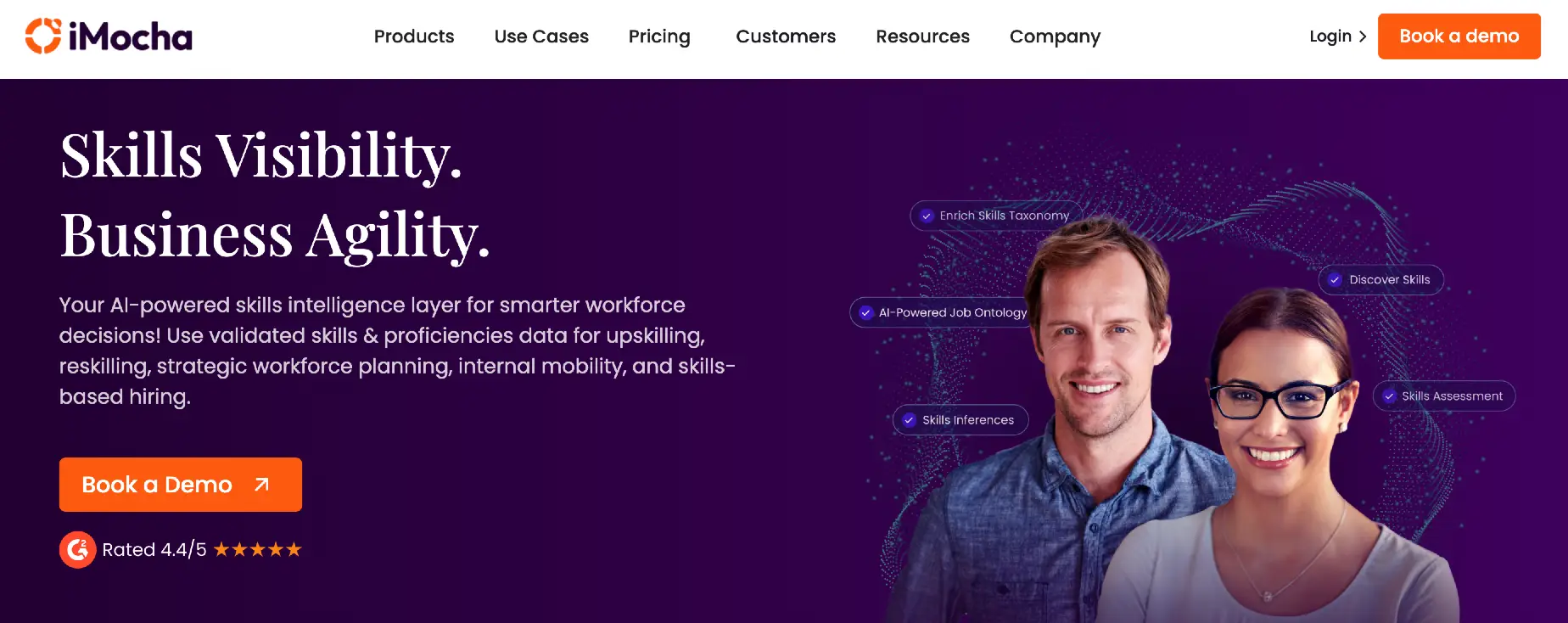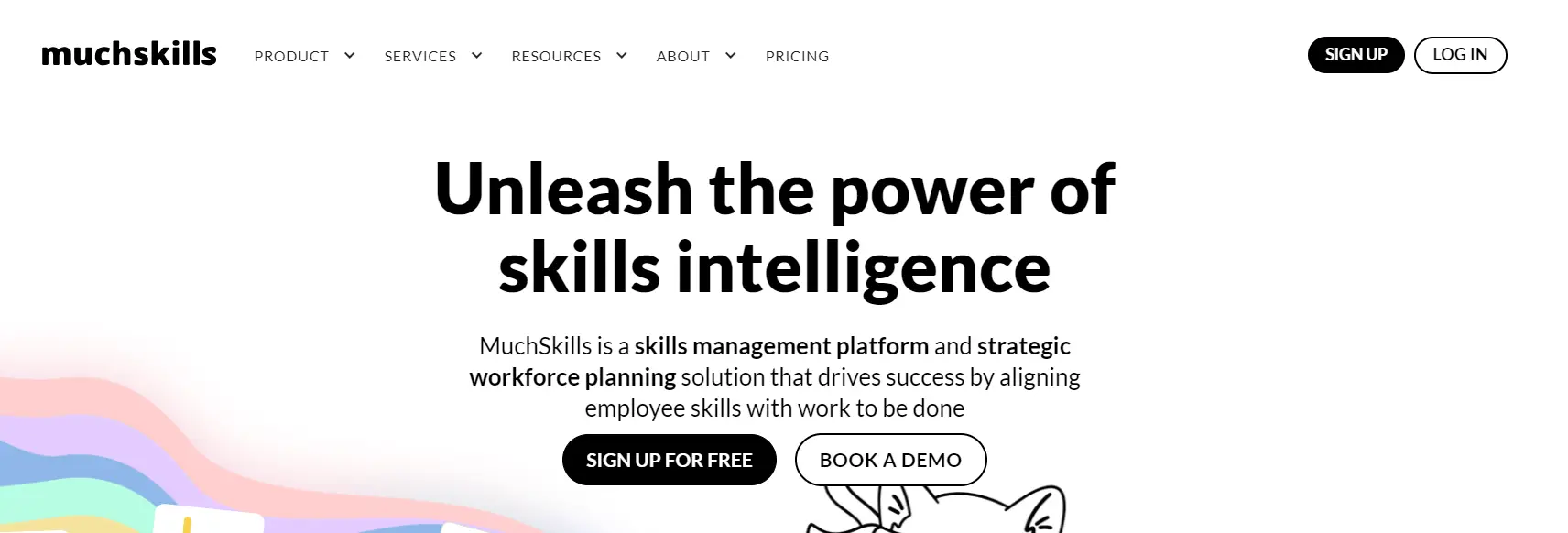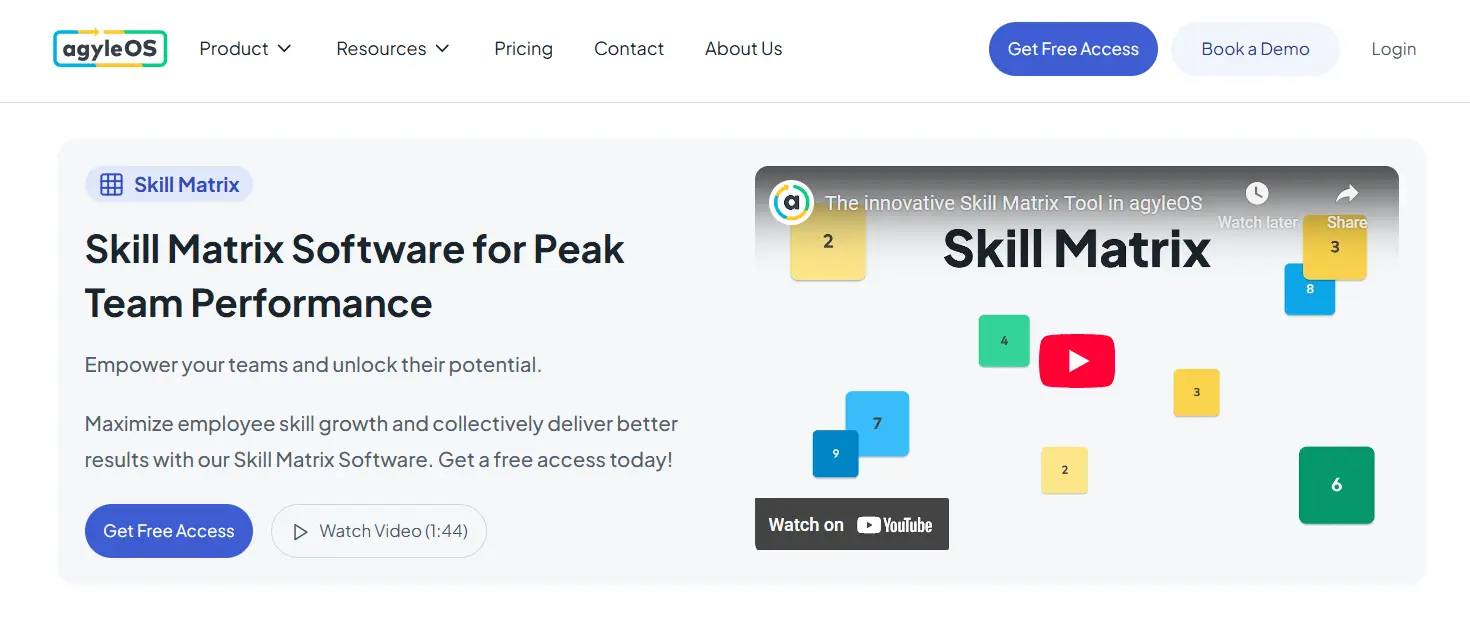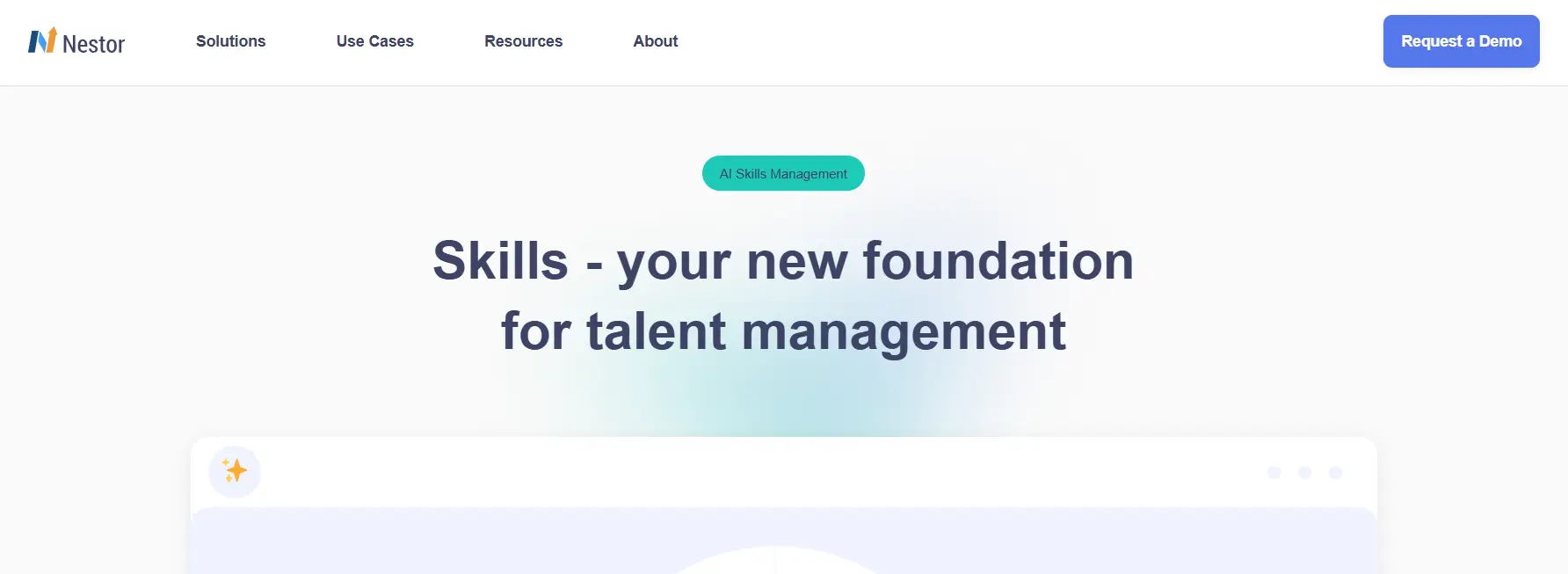Managing workforce skills with spreadsheets and disconnected tools is no longer practical in 2025. As job roles change and talent needs shift, organizations need a clear view of their teams' strengths and weaknesses. Without this visibility, skill gaps grow and business results decline.
A recent study reveals that 70% of corporate leaders are facing critical skills gaps that are directly impacting business outcomes.
Skills tracking software helps address this challenge. These platforms centralize skills data, enabling organizations to assess current capabilities, identify future needs, and take action through upskilling, reskilling, or strategic hiring.
This blog highlights the Top 12 Skills Tracking Software for 2025, each offering unique features to help organizations close skill gaps, boost engagement, and build future-ready teams.
Top 12 Skills Tracking Software
1. iMocha

iMocha is an AI-powered Skills Intelligence platform that supports a skills-first approach to workforce planning and development. It offers comprehensive skills tracking, automated validation, and AI-based inference to help organizations build and maintain dynamic, up-to-date skills profiles.
Key Features:
- AI Skills Inference: Maps employee skills based on job roles, assessments, and real-time data to ensure up-to-date skills profiles with minimal manual input.
- Skills Taxonomy: Ontology-based mapping ensures accurate skills identification and tracking.
- Multi-Channel Validation: Validate skills through assessments, simulations, and certifications.
- Skills Inventory: Continuously updated database of employee skills and proficiency levels.
- Skills Benchmarking: Compare workforce competencies against industry standards for strategic planning.
Founding Year: 2015
G2 Rating: 4.4/5 (276 Reviews)
Pricing: Check out iMocha pricing here
2. Runn

Runn is a resource management software that helps companies across multiple industries with resource scheduling, capacity management, project planning, and forecasting. Here are some key features of the software:
- Resource Scheduling: Runn streamlines resource management by letting you visually plan and track projects. This ensures everyone's on the same page and avoids overbooking, resulting in a more efficient workflow.
- Project Planning: It simplifies project planning with drag-and-drop scheduling, allowing you to visualize project timelines and resource allocation quickly.
- Project Forecasting: It uses data from your plans and timesheets to generate forecasts for project timelines and budgets, empowering proactive decision-making.
- Timesheets: The platform offers user-friendly timesheets that integrate seamlessly with project plans. This simplifies time tracking and ensures accurate data for reporting and forecasting.
- Reporting: It provides comprehensive reports with heatmaps and visualizations that offer valuable insights into project progress, resource utilization, and team performance.
Founding Year: 2018
G2 Rating: 5/5 (1 Review)
3. Skills Base

Skills Base is a cloud-based skills management platform that helps organizations with their real-time skills intelligence, visualize skills strengths, close skills gaps, and realize the team’s potential. Below are some key features of the platform:
- Skills Audit: Utilize Skills Base to do an organization-wide analysis of development needs and close skills gaps. Analyze and validate skills with Intuitive self-assessments, supervised assessments, and reporting.
- Skills Inventory: The platform lets you create a digital skills library. It consists of comprehensive skills data of your organization that evolves over time with your organization.
- Skills Matrix: You can leverage the platform to turn your manual skills data into a competency skills matrix to inform your business decisions.
Founding Year: 2018
G2 Rating: 4.6/5 (18 Reviews)
4. MuchSkills

MuchSkills is a modern, visual skills matrix platform that helps organizations map team skills, identify gaps, and build stronger, more balanced teams. It focuses on transparency and ease of use, enabling employees to self-report skills and track progress collaboratively. Here are some key features of the platfrorm:
- Skills Visualization: Offers a user-friendly interface to view and analyze team skills using interactive visualizations.
- Skill Matrix: Quickly identify team strengths, weaknesses, and development needs using a dynamic matrix format.
- Employee Self-Assessment: Encourages individuals to input and update their own skill sets, fostering ownership and engagement.
- Team Matching: Helps build effective project teams by matching skill needs with available talent.
- Integrations: Connects with common HR platforms and tools for seamless workflow.
Founding Year: 2019
G2 Rating: 4.5/5 (1 Review)
5. Kahuna

Kahuna is a skills and competency management software for operations, learning, and human resources. It aims to bridge the gap between these three areas. Here are some key features of the platform:
- Employee Dashboard: Kahuna Employee dashboard lets you highlight skills assigned to employees, clarify employee focus areas, and understand skills gaps and related learning resources. It also gives you a detailed view of employee skills proficiency, experience, and certifications with team matrix.
- Assignment Workbench: The platform allows you to display a parent-child taxonomy of skills, competencies, qualifications, and certifications with their Skill Library.
- Talent Finder: It provides you access to all validated skills data, learning, training completions, and experiences tracked in Kahuna.
- Capability Planning: Use skills data to understand the skill deficits and create action and development plans to reskill and close skill gaps accordingly.
Founding Year: 2012
G2 Rating: 4.9/5 (28 Reviews)
6. Cinode

Cinode positions itself as an all-in-one Saas platform that boosts consultancy growth by giving crucial insights into sales, delivery, and skills. Their skills management helps companies by capturing skills and identifying gaps. Let's look at some of the critical features of the platform:
- Skills Inventory: Discover all your skills and streamline sales, procurement, matching, and training with a top-tier skills inventory.
- Skills Visualization: It lets you visualize gaps and gain insights for upskilling, reskilling, recruitment, and partnerships. It also enables you to define the competencies required for your roles.
- Employee Competence and Growth Goals: You can utilize the platform to craft the right development plans for employees' competence and growth goals.
Founding Year: 2010
G2 Rating: 4.9/5 (28 Reviews)
7. AG5 Skills Intelligence

AG5 Skills Management Software helps you ditch manual skills tracking and offers a robust solution to visualize skill gaps across your teams and map training requirements. Here are the top skills-tracking features of the platform:
- Skills Inventory: AG5 provides you with a single source of truth for skills data with a centralized skills hub.
- Visual Skill Matrices: It also lets you map essential skills across roles, departments, and the entire organization with a clear visual representation.
- Training Plans: The platform lets you create and manage training plans and records to close your skills gaps.
Founding Year: 2019
G2 Rating: 4.7/5 (13 Reviews)
8. Agyleos

Agyleos offers a skill matrix software designed to help organizations track, analyze, and develop employee skills with ease. Built with flexibility in mind, it supports collaborative skills mapping and provides visibility into team capabilities to support workforce planning and development. Here are some key features of the software:
- Collaborative Skill Mapping: Managers and employees can jointly update and validate skill levels, improving transparency and team alignment.
- Visual Skill Matrix: View team skills by role, department, or individual to identify strengths and development areas quickly.
- Project Readiness Insights: Assess whether teams have the required competencies for upcoming projects or initiatives.
- Progress Tracking: Monitor skill development over time and align it with career goals or business needs.
- Simple Interface: Easy to use and customizable to fit different organizational structures.
Founding Year: 2021
G2 Rating: NA
Explore top 11 skills matrix software that complements skills tracking by providing a visual representation of employee competencies, aiding in effective workforce planning.
9. Nestor

Nestor is a people intelligence platform that combines skills management, performance, and engagement into a unified system. Its skills tracking capabilities allow organizations to build a dynamic view of employee competencies and link them directly to career growth and business outcomes. Here are some key features of the platform:
- Skills and Competency Mapping: Create a clear structure of required and existing skills aligned with roles, departments, and goals.
- Skill Gap Analysis: Identify areas where development is needed and recommend learning paths to close those gaps.
- Integrated Talent Development: Connect skill insights with performance reviews, feedback, and career planning.
- Employee-Led Growth: Empower employees to set development goals and track their progress through personalized dashboards.
- HR Integrations: Seamlessly sync data with existing HR tools and platforms.
Founding Year: 2018
G2 Rating: 4.9/5 (53 Reviews)
10. VibyAderant

Vi by Aderant is a people management platform built to handle all the nuances of hiring, developing, and managing talent. Their Skills Tracking helps you pinpoint missing skills and work experience. Let’s look at the top features of the platform:
- Skills Taxonomy: VibyAderant helps you create a central repository that shows employees what skills they need to progress. Within taxonomy, skills are organized by competency and career stage (early, mid-level, senior).
- Track Progress: The platform also lets you choose whether developmental progress is tracked by experience or by the number of times employees complete the skill.
- Comprehensive Reporting: The platform provides a bird' s-eye view of organization-wide data, filtered by department, office, or practice group, that helps highlight your workforce's collective skills and experience.
Founding Year: 2001
G2 Rating: 4.6/5 (31 Reviews)
11. Talentguard

Talentguard is a robust skills tracking software designed to empower organizations with clear insights into their workforce's capabilities. Here are some key features of the software:
- Unbiased Skill Verification: Compare self-assessments with manager evaluations to gain objective insights into your workforce's skills. This reduces bias and helps identify areas for alignment, feedback, and development goal setting.
- Personalized Learning Plans: Leverage personalized learning plans based on each employee's strengths, weaknesses, and aspirations aligned with your company's needs.
- Track Skill Development: Your employees can track their progress and document newly acquired skills, enabling them to request feedback from managers and demonstrate skill development towards achieving established goals.
Founding Year: 2009
G2 Rating: 4.7/5 (3 Reviews)
12. SkillsDB

SkillsDB is a cloud-based skills management software designed to help organizations track employee skills, identify skill gaps, and develop their workforce. Here are some key features of the software:
- Skills Taxonomy: SkillsDB allows you to catalog skills, roles, and competencies to better understand your organization.
- Skills Matrix: Create a skills matrix and gap analyses for a tactical and strategic improvement roadmap with SkillsDB.
- Skill Development: The platform also helps you analyze skill gaps and chart a personalized training plan accordingly.
Founding Year: 2008
Capterra Rating: 4.6/5 (13 Reviews)
Conclusion
Each skills tracking tool in this list offers distinct advantages. Some are integrated within broader skills management platforms, while others are designed specifically for tracking. The right choice depends on the organization’s goals, use cases, and workforce size.
iMocha stands out by going beyond tracking. It objectively assesses skills, anticipates future requirements, and promotes continuous growth through personalized learning. This helps teams stay prepared and motivated.
FAQs
What is Skills Tracking Software?
Skills tracking software is a digital platform that helps organizations monitor, assess, and manage employee competencies. It provides real-time insights into workforce skills, identifies gaps, and supports targeted training to enhance productivity and performance.
Why do organizations need skills tracking software?
Organizations need skills tracking tool to understand their workforce's strengths and weaknesses. By centralizing skills data, businesses can allocate resources effectively, design personalized development plans, and make informed decisions. This leads to improved productivity, talent retention, and long-term success.
What are the benefits of Skills Tracking Software?
Skills tracking software empowers your workforce by identifying skill gaps, optimizing resource allocation, targeting training, and informing data-driven decisions. These tools unlock benefits like improved productivity, talent development, retention, and engagement, ultimately leading to a future-proof and high-performing workforce.


.avif)
.webp)

.webp)


